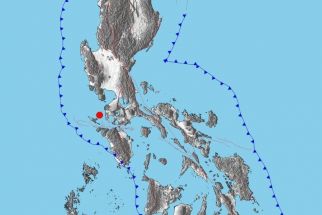Palace welcomes US decision to hire Pinoy nurses
May 15, 2005 | 12:00am
Malacañang lauded yesterday the United States’ move to resume hiring Filipino nurses to alleviate a staffing shortage, but said the government will continue to work hard so that Filipinos don’t have to leave the country to find good jobs.
Under a constitutional amendment approved by US President George W. Bush, 50,000 employment-based immigrant visas (EB-3) that had been allotted to other countries from 2001 to 2004 but went unused could now be reassigned to the Philippines, India and China.
EB-3 visas are used mainly by US hospitals for hiring foreign-trained nurses.
"We welcome Bush’s action, which is a renewed opportunity for our nurses to show the world the competence and excellence of the Filipino workforce," Press Secretary Ignacio Bunye said in a statement.
He cited Filipino workers here and abroad for having been "steadfast in fueling the pace of the economy."
"Nonetheless, we look forward to the day when enough well-paying Philippine jobs can be had so that our qualified workers need not try their luck abroad," Bunye said.
Ambassador to Washington Alberto del Rosario said Thursday that the amendment of the American Competitiveness in the 21st Century Act of 2000 "opens the door for the entry into the US of our nurses, who are well-known for their competence and compassion as health workers."
In another statement, Foreign Affairs Secretary Alberto Romulo commended the American Hospital Association, US recruitment agencies, the Philippine Nurses Association and members of the Filipino community in the US for their support of the passage of the amendment.
The US Citizenship and Immigration Services (CIS) suspended last December the processing of EB-3 applications from the Philippines, India and China after the three countries exceeded their annual quotas.
The CIS said that in order to clear the backlog, it would process only visa and status-adjustment applications filed before Jan. 1, 2002.
The amendment is expected to advance the priority dates for countries with pending EB-3 applications. At present, the cut-off date for China, India and the Philippines is April 2002.
Filipino nurses are the most sought-after foreign health care workers in the US and are likely to benefit most from the amendment, which was incorporated into the Emergency Supplemental Appropriations for Defense, the Global War on Terror and Tsunami Relief Act signed by Bush last Wednesday.
The Department of Health and Human Service estimates there are 130,000 vacancies for registered nurses throughout the US, a figure expected to double within the next five years.
Under a constitutional amendment approved by US President George W. Bush, 50,000 employment-based immigrant visas (EB-3) that had been allotted to other countries from 2001 to 2004 but went unused could now be reassigned to the Philippines, India and China.
EB-3 visas are used mainly by US hospitals for hiring foreign-trained nurses.
"We welcome Bush’s action, which is a renewed opportunity for our nurses to show the world the competence and excellence of the Filipino workforce," Press Secretary Ignacio Bunye said in a statement.
He cited Filipino workers here and abroad for having been "steadfast in fueling the pace of the economy."
"Nonetheless, we look forward to the day when enough well-paying Philippine jobs can be had so that our qualified workers need not try their luck abroad," Bunye said.
Ambassador to Washington Alberto del Rosario said Thursday that the amendment of the American Competitiveness in the 21st Century Act of 2000 "opens the door for the entry into the US of our nurses, who are well-known for their competence and compassion as health workers."
In another statement, Foreign Affairs Secretary Alberto Romulo commended the American Hospital Association, US recruitment agencies, the Philippine Nurses Association and members of the Filipino community in the US for their support of the passage of the amendment.
The US Citizenship and Immigration Services (CIS) suspended last December the processing of EB-3 applications from the Philippines, India and China after the three countries exceeded their annual quotas.
The CIS said that in order to clear the backlog, it would process only visa and status-adjustment applications filed before Jan. 1, 2002.
The amendment is expected to advance the priority dates for countries with pending EB-3 applications. At present, the cut-off date for China, India and the Philippines is April 2002.
Filipino nurses are the most sought-after foreign health care workers in the US and are likely to benefit most from the amendment, which was incorporated into the Emergency Supplemental Appropriations for Defense, the Global War on Terror and Tsunami Relief Act signed by Bush last Wednesday.
The Department of Health and Human Service estimates there are 130,000 vacancies for registered nurses throughout the US, a figure expected to double within the next five years.
BrandSpace Articles
<
>
- Latest
- Trending
Trending
Latest






























